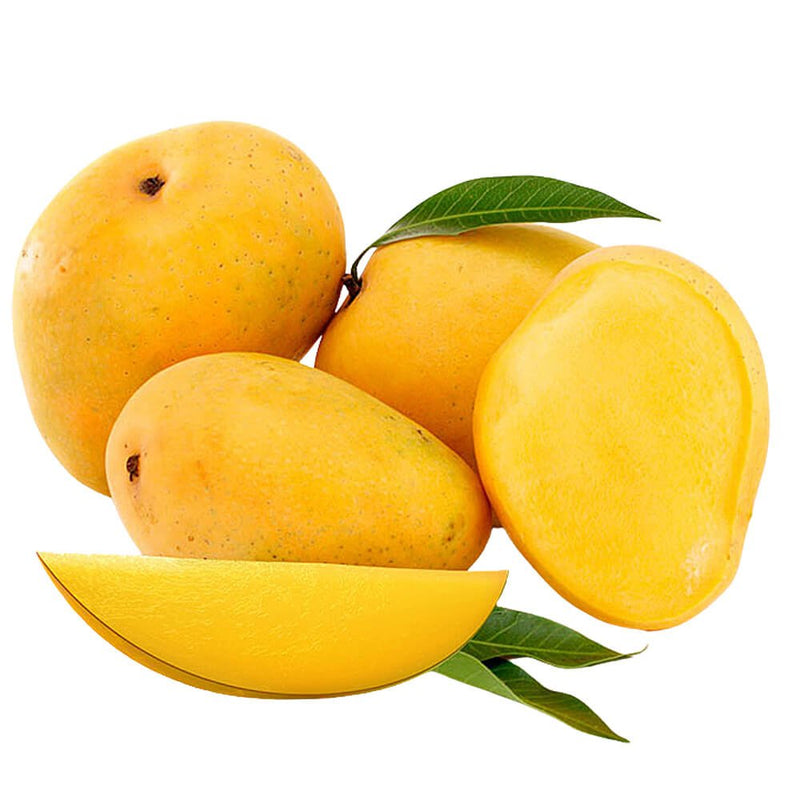Mango Alphonso King of Mangoes 2.0-2.5m
Free returns on all eligible orders
You have 7 days to request a return. All sale items are final sale.
The Mango Alphonso "King of Mangoes" 2.0–2.5m refers to a premium Alphonso mango tree sold at a height of 2.0 to 2.5 meters, prized for its exceptional fruit quality and ornamental value.
Here’s a detailed breakdown:
🥭 What is Mango Alphonso?
-
Alphonso mango, often called the "King of Mangoes", is a legendary variety originating from the Konkan region of Maharashtra, India.
-
It’s celebrated for its rich sweetness, vibrant golden-yellow color, smooth non-fibrous pulp, and intense aroma.
-
The variety is named after Afonso de Albuquerque, a Portuguese general and colonial administrator who helped introduce it to India in the 16th century.
🌳 What does “2.0–2.5m” mean?
-
This refers to the height of the mango plant being sold—between 2.0 and 2.5 meters tall.
-
Such a size indicates a well-established, semi-mature tree, often ready for planting in gardens or orchards.
-
These trees are typically grafted, ensuring they retain the true Alphonso characteristics and bear fruit sooner than seed-grown trees.
🛒 Where is it sold?
-
Retailers like Greensouq offer these trees for sale, often at a discounted price.
-
These trees are marketed for home gardeners, collectors, or small-scale orchardists who want to grow a premium mango variety.
🌱 Why is it special?
-
Alphonso mangoes are among the most expensive and sought-after mangoes globally.
-
A tree of this size can begin fruiting within 2–3 years, depending on care and climate.
-
It’s ideal for tropical and subtropical climates, requiring full sun and well-drained soil.
Mango Alphanso, often referred to as the "King of Mangoes," is a premium mango variety cherished for its unparalleled sweetness, vibrant color, and rich aroma. Originating from India, particularly the Konkan region of Maharashtra, this mango is a global favorite due to its exquisite taste and smooth texture.
The Alphonso mango traces its roots to western India, specifically the Konkan region of Maharashtra. It’s believed to have been introduced or refined in the 16th century during Portuguese colonization, possibly named after Afonso de Albuquerque, a Portuguese general and governor who helped establish colonial presence in India. While the exact origin story is debated, this cultivar has been perfected over centuries by local farmers, particularly in the towns of Ratnagiri and Devgad. By the 19th and 20th centuries, its reputation spread globally, earning it a loyal following and export status. Today, India remains the primary producer, with strict geographical indications (GI) protecting authentic Alphonso mangoes from these regions.
Alphonso mangoes are medium-sized, typically weighing 8–12 ounces (225–340 grams), with an oval or kidney-shaped form. Their skin starts green and ripens to a golden-yellow hue, often with a slight reddish blush, though it’s not as vibrant as some other varieties. The flesh is a deep saffron-orange, smooth, and fiber-free, setting it apart from stringier mango cultivars. The fruit is juicy and creamy, with a thin, edible seed that maximizes the edible portion. The tree itself thrives in tropical climates, reaching heights of 30–100 feet (9–30 meters) if unpruned, though commercial orchards keep them shorter for easier harvesting.
The taste of an Alphonso mango is what elevates it to legendary status. It’s intensely sweet with a rich, honeyed flavor, balanced by subtle tart undertones that keep it from being cloying. There’s a floral, almost resinous quality—sometimes likened to a mix of peach, apricot, and citrus—followed by a velvety, buttery finish. This complexity makes it a favorite for eating fresh, blending into smoothies, or using in desserts like mango lassi or ice cream. Connoisseurs often note its lingering aftertaste, which is both refreshing and indulgent.
Alphonso mango trees are tropical by nature and thrive best in USDA Hardiness Zones 10–11. They need warm, humid conditions with temperatures consistently above 40°F (4°C) to avoid damage, though they prefer a range of 70–95°F (21–35°C) for optimal growth and fruiting. A distinct dry season followed by monsoon-like rains mimics their native environment, triggering flowering and fruit development. In the U.S., they can be grown in parts of Florida, Southern California, and Hawaii, but frost is a dealbreaker—anything below freezing can kill young trees or ruin a season’s crop. The Alphonso King of Mangoes home growers outside these zones often use greenhouses or containers to protect them.

